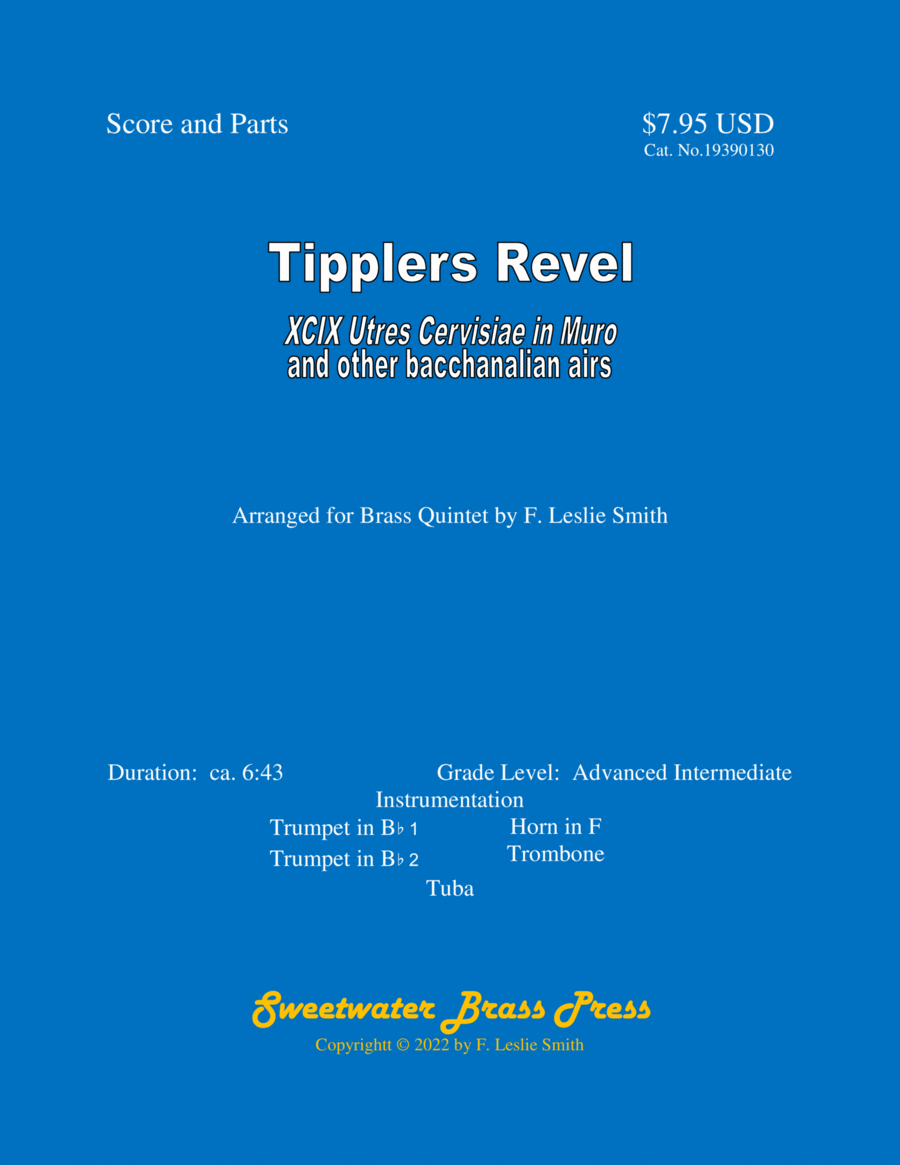Brass Ensemble - Level 4 - Digital Download SKU: A0.1093770 Composed by F. Leslie Smith. Folk,Holiday,Traditional. Score and parts. 57 pages. Sweetwater Brass Press #697853. Published by Sweetwater Brass Press (A0.1093770). Â Â Â Â The dictionary defines revel as âa time or instance of carefree fun.â The verb tipple refers to the imbibing of spirits. A tippler is one who drinks beer, wine, whiskey or other such spirituous liquids. So a tipplers revel would be a gathering of folks who, in the words of Dolly Partonâs âTwo Doors Down,â are âlaughing and drinking and having a party.â Â Â Â Â This Tipplers Revel is a compilation of traditional drinking songs. It begins and ends with that bane of school trips, faculty sponsors, bus drivers and chaperones, â99 Bottles of Beer on the Wall.â And between those two bookends come âRye Whiskey,â âLittle Brown Jug,â âLandlord, Fill the Flowing Bowl,â âJimmy Crack Corn,â âBeer, Beer, Beer (An Ode to Charlie Mops, The Man Who Invented Beer),â âHot Time in the Old Town Tonight,â âWein, Weib und Gesang [Wine, Woman, and Song],â âDrink to Me Only with Thine Eyes,â âThere Is a Tavern in the Town,â âGood Night, Ladies,â âHow Dry I Am,â and brief quotes from about a half dozen other melodies associated with quaffing. Â Â Â Â For the most part, this arrangementâs time signature is 4/4 and should be played at about 120 BPM. There are, however, two sections of 3/4 time, one of which is marked âtempo di valse,â and the opening and ending few measures should be played rather slowly. Â Â Â Â The music should be well within the normal range of the group. Possible exceptions: trumpets play their A above the staff a couple of times. Â Â Â Â There are quite a few 16th notes in the allegro sections. (And one could make the argument that at least two sections ought to have been written in 6/8 time. But they werenât.) Â Â Â Â Completed in 2022, performance time runs about 6 minutes, 43 seconds. The arranger, Les Smith, will be happy to provide substitute parts (for example, treble clef baritone for trombone) at no charge. He would like to receive your suggestions, comments, corrections and criticisms. For more arrangements by Les, enter Sweetwater Brass Press (without the quotation marks) in the Sheet Music Plus or Sheet Music Direct search box. (Also, purchase of this piece entitles you to your choice of another of his arrangements at no charge; send a copy of your purchase receipt directly to him at lessmith61@bellsouth.net.) Â
